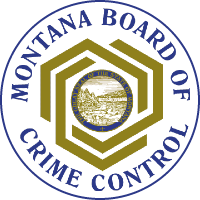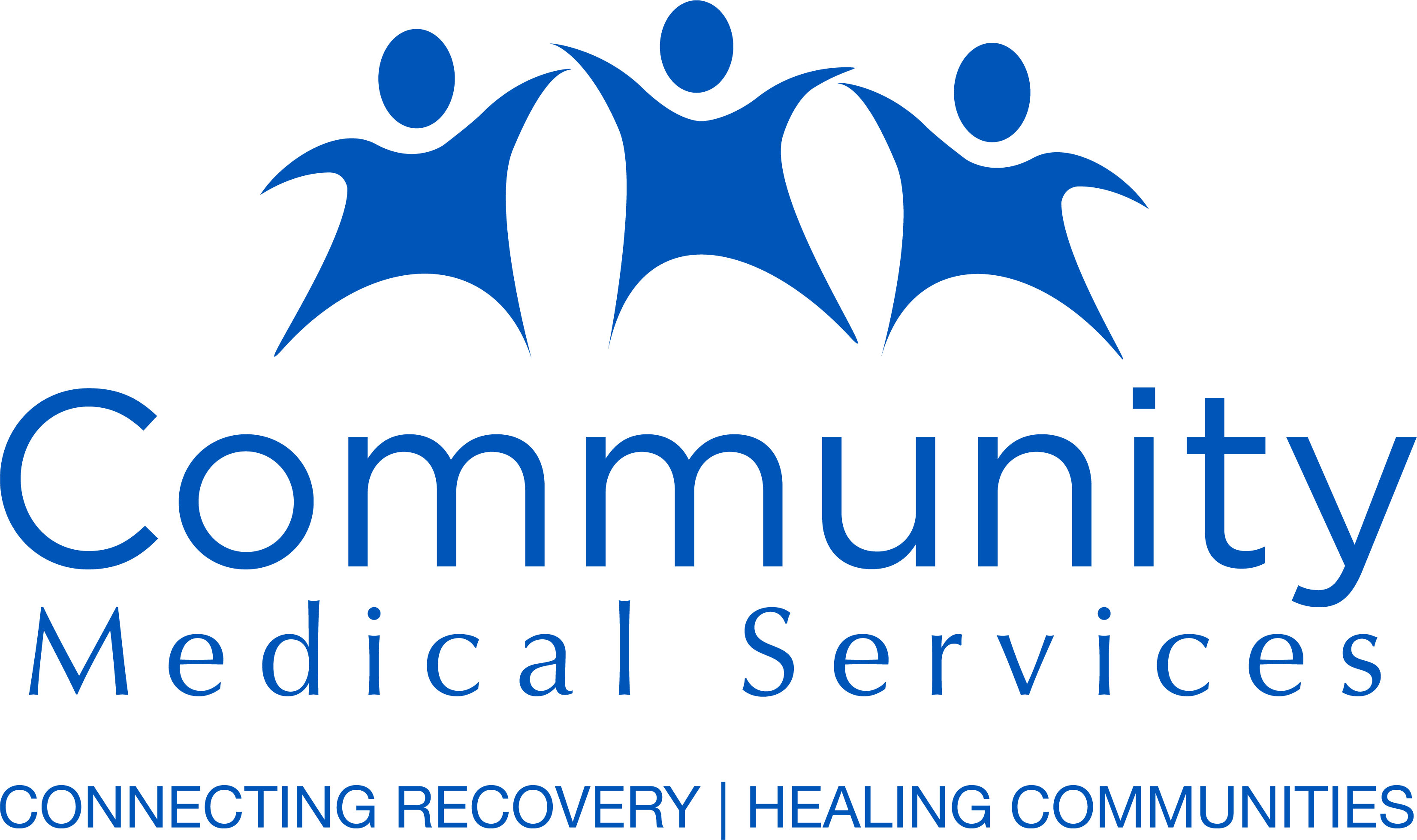
2021 Montana Crime Prevention Conference
The 2021 Montana Crime Prevention Conference took place on September 28 and 29, 2021 at Fairmont Hot Springs Resort. Post-conference training took place on September 30 and October 1, 2021.
We are planning now for the 2022 Montana Crime Prevention Conference. Subscribe to our Crime Prevention Conference email list for updates.
Training Credits
All 2-hour sessions are eligible for POST, CPE, OPI, and CLE credits.
2021 Recognition Awards
MBCC is pleased to announce the 2021 Recognition Award Recipients:
- 2021 Lifetime Achievement Award (LAA) - Ted Lechner
- 2021 Innovative Community Improvement Award (ICIA) - Tara Cook
Articles with more information about each recipient can be found on the Recognition Awards page.
MBCC held an Awards Ceremony in honor of Ted Lechner and Tara Cook at the Conference on Wednesday, September 29, 2021.
Thank You to Our Sponsors!
Gold Level Sponsors
Silver Level Sponsors

Bronze Level Sponsors
Session Schedule
Crime Prevention Conference, Day 1
Opening Ceremony
Tuesday, 8:00 a.m. - 8:30 a.m.
Opening Remarks
- Sheriff Leo Dutton
- Chair, Montana Board of Crime Control
Presentation of Colors
Montana Sheriffs and Peace Offiers Association (MSPOA) Honor Guard
National Anthem
Anaconda Schools Choir
Blessings
- Sheriff Leo Dutton
- Chair, Montana Board of Crime Control
Welcome
- Sheriff Leo Dutton
- Chair, Montana Board of Crime Control
- Kristen Juras
- Lietenant Governor of Montana
2021 Legislative Panel Update
Tuesday, 8:30 a.m. - 9:30 a.m.
The panelists will provide an update on key policy decisions passed in the 2021 Legislative Session. Presenters will address the new laws and how they impact, improve, or pose challenges for the Montana Justice System. Recognizing the need for a collaborative approach to justice reform, panelists will represent the continuum from local government through law enforcement, prosecution, and correctional programs.
Breakout Session 1
Tuesday, 9:45 a.m. - 11:45 a.m.
Victims Track
Secondary Trauma Activates Resiliency: Tracking the Impact of Trauma Engaged Work in the Mind, Body, Emotions, and Relationships of Workers (Level One)
- Andrew Laue
- LCSW, STAR-T Secondary Trauma Activates Resiliency Training
In this session, Andrew Laue will guide attendees through both an experiential and a content-driven training process to build resiliency in professionals at risk of experiencing secondary trauma. The training integrates trauma theory, attachment theory, neurobiology, and embodiment work as it applies to the secondary trauma we are exposed to through traumatic work environments. Andrew creates safety in any experiential process and encourages participants to track the impact of these training strategies on their whole system.
Law Enforcement Track
Building Bridges Between Jails and Community-Based Treatment for Opioid Use Disorders
- Captain Shane Hildenstab
- Lewis & Clark County Sheriff’s Office
- Kellie McBride
- Lewis & Clark County Department of Criminal Justice Services
- Mikael Lindquist
- Lewis & Clark County Department of Criminal Justice Services
- Jocelyn Olsen
- Lewis & Clark County Department of Criminal Justice Services
- Taylor Schrauder
- Lewis & Clark County Department of Criminal Justice Services
Pre-Session Assignment: please watch "Addiction Neuroscience 101" prior to attending this session (produced by Health Management Associates (HMA) Institute on Addiction and recommended by the Department of Justice's Burea of Justice Assistance and Arnold Ventures).
Individuals with opioid use disorder (OUD) increasingly pass through Montana's jails each year, placing our detention facilities at the epicenter of the opioid crisis. Few jails in the nation offer the FDA-approved medications that have consistently been shown to be the most effective forms of treatment for OUD when combined with behavioral therapies. At the urging of the Sheriff, Lewis and Clark County is one of those few jails. In 2020, Lewis and Clark County partnered with their two Federally Qualified Health Centers (FQHC), Helena Indian Alliance and PureView Health,to implement medication-assisted treatment (MAT) in their detention center. During this session, Sheriff Leo Dutton, Detention Center Captain Shane Hildenstab, and Criminal Justice Services Director Kellie McBride will share how their "MAT Bridges" program was successfully implemented; including the bumps in the road to that implementation.
General Track
Gas Station Dope…Taking Action on Substances that are Trending in our Communities
- Thomas Risberg,
- Development Director, Alliance for Youth
- Beth Price Morrison
- Prevention Program Manager for the Alliance for Youth, Co-chair of Cascade County Substance Abuse Prevention Alliance
This session will tell the story of how a community coalition responded to a plea for help from their medical partners to do something about a substance (Kratom) that was wreaking havoc in their community. Learn how the Cascade County Substance Abuse Prevention Alliance took a unique approach to a problem, using a rather unconventional environmental scan and an outreach campaign that asked for retailers to be part of the solution, not the problem. Finally, you will learn that their approach is entirely duplicatable with any substance or problem in any community - even yours!
Session Materials
Lunch Session
Tuesday, 12:00 p.m. - 2:30 p.m.
Public vs. Private Criminal Justice Information and the Expectation of Transparency in Government Operations
- David Ortley
- Assistant Attorney General, Division of Criminal Investigation, Montana Department of Justice
In this cross-sector presentation, Assistant Attorney General David Ortley will discuss the expectations around transparency for public and private crime justice information in government operations. Attendees will learn how to identify the sources of law and principles governing the balance between privacy and the public’s right to know, gain a better understanding of the law governing the dissemination of public records, and differentiate between public and confidential criminal justice information.
Session Materials
Breakout Session 2
Tuesday, 2:45 p.m. - 4:45 p.m.
Victims Track
Safe, Whole, and Heard: A Holistic, Inter-Agency Approach to Protecting Crime Victims and Their Rights in Montana
- Jain Walsh, Esq.
- Staff Attorney, Crime Victim Group, Montana Legal Services Association
- Brittney Mada, J.D.
- Staff Attorney, Crime Victim Group, Montana Legal Services Association
Victims of crime are afforded constitutional and statutory rights in Montana. This training will focus on what those rights are, the legal underpinnings, and how agencies can work together to ensure victims are safe, able to meaningfully participate, and made whole as they move through the criminal justice system. Following a hypothetical case from the initial call for service through post-conviction, the trainers will illustrate at what procedural points allied professionals can work together to protect victims' rights and privacy.
Law Enforcement Track
IPV Strangulation Investigations
- Nate Griesse
- Domestic Violence Detective, Special Victims Unit, Missoula Police Department
- Selene Koepke
- Assistant Attorney General, Montana Department of Justice
In our history, Strangulation has been minimized in society, media, hospitals, and law enforcement due to the lack of training and education. This training will equip law enforcement officers, medical professionals, prosecutors, and advocates with the tools they need to provide a victim centered response to IPV strangulation investigations.
General Track
Re-Entry Success Through Career Readiness Training
- Gayle Butler
- Administrator, Montana Correctional Enterprises
- Lisa Hunter
- Director of Training, Montana Correctional Enterprises
- Marisa Britton-Bostwick
- Director of Education, Montana Correctional Enterprises
- Joel Miller
- Industries Director, Montana Correctional Enterprises
This presentation will include information on how Montana Correctional Enterprises (MCE) are preparing offenders in the Montana Department of Corrections (MT DOC) to re-enter Montana communities trained to work or to move on to post-secondary Education through a variety of programs. There are over 20+ evidence-based education and vocational training programs provided to the offenders at Montana State Prison and Montana Women’s Prison that provide offenders with pre-apprenticeship programs and nationally- and industry-recognized credentials upon completion of the programs. These programs are run specifically through MCE and work closely with other state agencies to provide educational and training opportunities to lower the chance of recidivism. It is MCE’s goal to produce more workers to fill the skill and employment gaps in Montana through these educational and vocational training programs. MCE is also working to ensure offenders return to the community ready to work and be productive members of society, lessening the burden on the taxpayers and other state agencies. Furthermore, MCE aims to reduce the number of victims of crime and to lessen the crimes committed by these offenders upon discharge, which in turn, will lessen the burden on law enforcement agencies across the state.
Networking Event
Tuesday, 6:00 p.m. - 7:30 p.m.
Join MBCC Board members and staff for hours d’oeuvres outside at the Pavilion. There will be a cash bar and light appetizers will be provided.
Crime Prevention Conference, Day 2
Breakout Session 3
Wednesday, 9:30 a.m. - 11:30 a.m.
Victims Track
Dynamics of Abuse and the Importance of Multidisciplinary Teams and Children's Advocacy Centers
- Brenda George
- Executive Director, Children’s Alliance of Montana
- Dana Toole
- Bureau Chief, Special Service Bureau, Montana Department of Justice
Brenda George and Dana Tool will present essential information professionals need to know to effectively respond to child sexual abuse. Professionals will understand and recognize aspects of the dynamics of abuse – delayed disclosure, entrapment, disclosure as a process, accommodation, grooming and secrecy. Multidisciplinary Teams and Child Advocacy Centers are best practices for a comprehensive, trauma-informed, coordinated response to crimes against children.
Law Enforcement Track
Walk a Day in Their Shoes – A Reentry Simulation
- Katie Weston
- Probation & Parole Officer II, Montana Department of Corrections
This reentry simulation will illustrate the journey to self-sufficiency and the barriers that may contribute to feelings of helplessness and decreased self-efficacy. Participants will assume the identity of an ex-offender and perform tasks in four 20-minute sessions with each session representing a week. By the end of this eye-opening activity, participants will have simulated a month in the life of someone who has released from prison. Participants will encounter the same challenges faced by many ex-offenders as they try to complete their court ordered obligations as well as maintain their day to day life. This simulation suggests that, ultimately, the ability to navigate “the system” may be a primary factor in the relationship between resiliency and recidivism.
General Track
Trauma-Informed Threat Assessment
- Emily Sallee
- PhD, BD-TMH, CTP, Assistant Professor of Counseling, Executive Director of the Montana Safe Schools Center, University of Montana
- Jeff McDonald
- Safety Specialist, Montana Safe Schools Center, University of Montana
Threat assessment, as a multi-disciplinary practice under the umbrella of multi-tiered systems of support (MTSS) strategies, often results in stigmatized evaluation and punitive consequences. This session will utilize a trauma-informed lens to re-envision threat assessment as a tool to more readily support higher risk students through trauma responsive practices.
The presenters will engage the participants through lecture and experiential learning in the form of case scenarios and practice with threat assessment materials. The threat assessment materials are sourced from the Department of Homeland Security, as well as supplemental materials to benefit the various needs of the participants.
Awards Luncheon
Wednesday, 12:00 p.m. - 1:30 p.m.
Join us in honoring and congratulating our 2021 Lifetime Achievement Award and 2021 Innovative Community Improvement Award winners.
The Lifetime Achievement Award is presented to a deserving individual (or group of individuals) who has achieved professional excellence and made lasting contributions to improve Montana’s justice system throughout their career. The award honors an individual’s proven leadership, vision, and innovation in their field.
The Innovative Community Improvement Award is presented to a deserving individual (or group of individuals) who has, through a specific campaign or program, made lasting contributions to promote public safety and crime prevention within their community. The award honors an individual’s proven leadership, vision, and innovation resulting in lasting contributions and significant improvements to their community.
Breakout Session 4
Wednesday, 2:00 p.m. - 4:00 p.m.
Victims Track
Missing Indigenous Persons in Montana
- Ellie Bundy
- Councilwoman, Confederate Salish & Kootenai Tribes; Presiding Officer, Montana Missing Indigenous Persons Task Force
Montana has been at the forefront of addressing the crisis of Missing & Murdered Indigenous Persons. This presentation will discuss the MMIP movement, relevant legislation, and all actions being taken at the national, state, and tribal level (particularly CSKT). Discussion will include the implementation of CSKT's Tribal Community Response Plan.
Law Enforcement Track
Investigation of Adult Maltreatment: Abuse, Neglect, and Financial Exploitation
- Michael Hagenlock
- Bureau Chief, Adult Protective Services (APS)
This presentation is intended for law enforcement officers responding to situations of suspected or alleged elder abuse, neglect, or exploitation in private residences, nursing homes, or other long-term care facilities. In this presentation, attendees will learn what elder abuse is, what the different types of elder abuse that can be found in any situation are, and how to determine whether abuse has occurred and who the perpetrator is. Different types of elder abuse include financial, physical, sexual, and emotional abuse. We will discuss what to look for in terms of physical abuse, how to determine who the perpetrator/s is/are, and how to respond to family members who have reported the allegations. We will also discuss how to interview elderly victims, how to document suspected cases of elder abuse, and how to obtain information while maintaining the health and safety of the victim. Lastly, we will discuss the need for working within and among different agencies to determine whether abuse has occurred and the need for finding solutions to the problem and assuring the alleged victim is protected.
Session Materials
General Track
The Sober Life: Breaking the Cycle of Addiction By Fostering Connection, Purpose, and a Sense of Individual Agency
- Thomas Risberg
- Development Director, Alliance for Youth
- Dean Snow
- Sober Life Program Manager, Alliance for Youth
The Sober Life provides a healthy outlet where people in recovery can fulfill their need for connection and purpose. We are people in recovery, helping those in recovery—By people in recovery, for people in recovery. In just over two years, we have grown our membership to over 400 people, and we offer a range of free and family friendly events, fitness activities, and educational experiences where those in recovery can enjoy fellowship and build friendships in a welcoming and alcohol, drug and judgement free environment. We also offer volunteer opportunities, so our members can develop individual agency and a sense of purpose while giving back to the community. In this presentation, you will learn about the theory of change behind the Sober Life, what the Sober Life does, how it does it and where the Sober Life fits in the existing substance abuse prevention and treatment ecosystem. You will also learn about how the Sober Life model aligns with emerging brain science and addiction treatment research, how you can implement the Sober Life model in your community and how implementing the Sober Life at scale could substantially reduce relapse and recidivism rates as well as spending on acute medical care and inpatient treatment. Sober Life founder, Thomas Risberg, and Sober Life Program Manager, Dean Snow, will use PowerPoint slides, short video clips and an informal conversational style to give you all the information you need to understand the Sober Life while hopefully having some laughs as well.
Session Materials
Informational Session
Wednesday, 4:30 p.m. - 5:00 p.m.
Informational
The MBCC Liaison Project: The Road to Supporting Victim Services
- Tawny Rogers
- State Victim Liaison, Montana Board of Crime Control
- Jennifer Buckley
- Tribal Victim Liaison, Montana Board of Crime Control
Join Montana Board of Crime Control's Tawny Rogers and Jennifer Buckley for an overview of the Victim Liaison Project. The project's goal is to seek and collaborate with all service providers and organizations that want to help identify and address the gaps that victims encounter throughout Montana. We believe that services should be available to all victims despite their geographic location. We invite you to come meet the liaisons and discuss how you can be part in supporting victim services in Montana.
Post-Conference Training, Day 1
Restorative Practices Training - Day 1
Thursday, 8:00 a.m. - 5:00 p.m.
Registration is open.
The two-day training will teach attendees how to foster a sense of community, increase staff consistency around behavior expectations, act as a facilitator between youth and staff, practice social-emotional learning, and minimize the need for disciplinary action, including suspensions and expulsions.
Subgrantee Training
Thursday, 9:00 a.m. - 4:00 p.m.
MBCC staff will guide current subgrantees through the finer points of successfully managing funds from MBCC. Topics will include writing and submitting strong proposals that get funded, what to expect from Risk Assessments and monitoring, how to use a Logic Model, reporting requirements and timelines, how to calculate match, projected funding opportunity, board meeting, and funding decision dates, grant amendments and more. The Statistical Analysis Center will provide a demo of MBCC’s new data dashboard and discuss how subgrantees can cite data to strengthen their funding applications.
Session Materials
Post-Conference Training, Day 2
Restorative Practices Training - Day 2
Friday, 8:00 a.m. - 5:00 p.m.
Registration is open.
The two-day training will teach attendees how to foster a sense of community, increase staff consistency around behavior expectations, act as a facilitator between youth and staff, practice social-emotional learning, and minimize the need for disciplinary action, including suspensions and expulsions.



